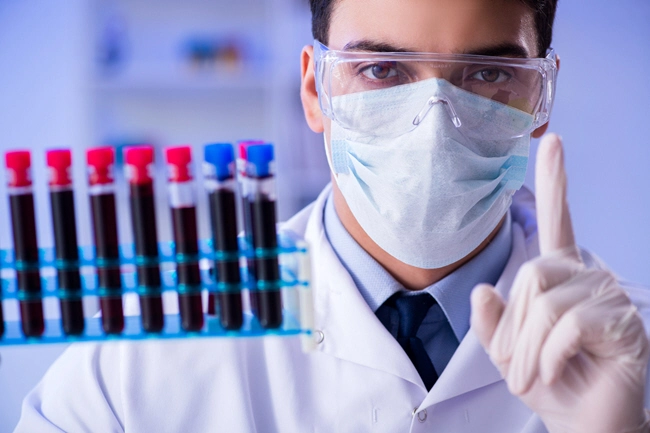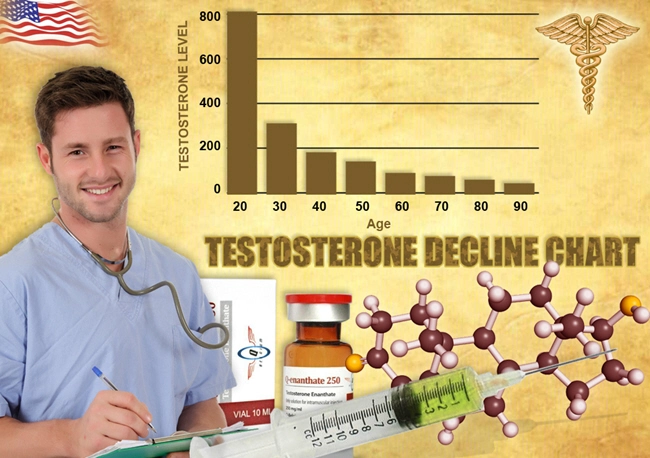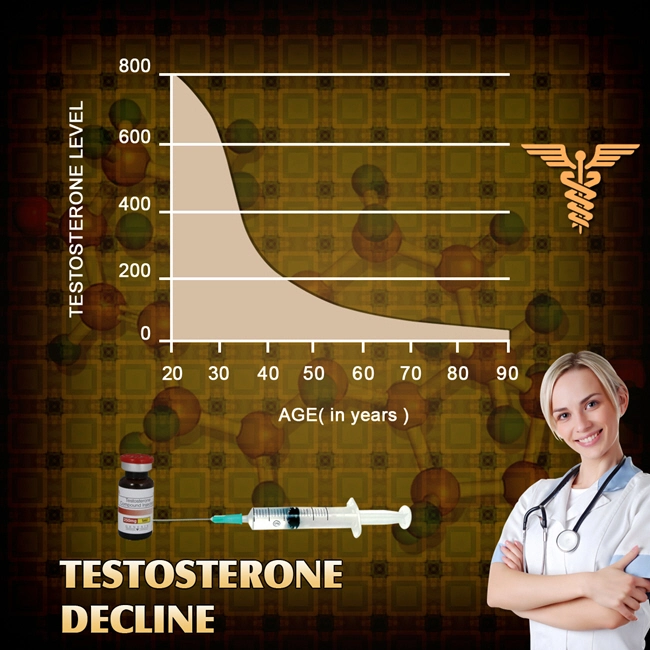
Introduction to Testosterone Replacement Therapy
Testosterone replacement therapy (TRT) has become a focal point of interest for many American men seeking to address the symptoms of low testosterone, a condition known as hypogonadism. As men age, testosterone levels naturally decline, which can lead to a variety of symptoms including decreased libido, fatigue, and mood changes. TRT aims to restore testosterone levels to a normal range, potentially alleviating these symptoms and improving quality of life.
The Latest Research on TRT
Recent studies have shed light on the efficacy and safety of TRT. A comprehensive review published in the *Journal of Clinical Endocrinology & Metabolism* analyzed multiple clinical trials and found that TRT can significantly improve sexual function, mood, and energy levels in men with hypogonadism. Moreover, the therapy has been shown to increase bone density, which is crucial for preventing osteoporosis in aging men.
However, the research also underscores the importance of careful monitoring. A study in the *New England Journal of Medicine* highlighted that while TRT can offer benefits, it is not without risks. These include potential increases in red blood cell count, which can lead to blood clots, and a possible association with cardiovascular events, although the latter remains a topic of ongoing debate.
Who Should Consider TRT?
TRT is primarily recommended for men diagnosed with hypogonadism, which is confirmed through blood tests showing consistently low testosterone levels. Symptoms such as reduced sexual desire, erectile dysfunction, decreased muscle mass, and fatigue should also be present. It is crucial for men to consult with a healthcare provider to determine if TRT is appropriate for their specific health needs.
Potential Benefits of TRT
For those who qualify, TRT can offer several benefits. Improved sexual function is often the most sought-after outcome, with many men reporting enhanced libido and better erectile function. Additionally, TRT can lead to increased muscle mass and strength, which can be particularly beneficial for men engaged in regular physical activity. Mood improvements, including reduced irritability and depression, have also been documented, contributing to an overall better quality of life.
Risks and Side Effects
While TRT can be transformative for some, it is not suitable for everyone. Potential side effects include acne, sleep apnea, and an enlarged prostate. More serious concerns involve the cardiovascular system, with some studies suggesting a link between TRT and an increased risk of heart attack or stroke. Therefore, men with a history of heart disease or prostate cancer should approach TRT with caution and under close medical supervision.
Monitoring and Management
Effective management of TRT involves regular monitoring of testosterone levels and symptoms. Blood tests are typically conducted every three to six months to ensure that testosterone levels remain within the therapeutic range. Additionally, monitoring for potential side effects, such as changes in prostate-specific antigen (PSA) levels, is essential to mitigate risks.
Conclusion: Weighing the Pros and Cons
For American men considering TRT, it is essential to weigh the potential benefits against the risks. While TRT can significantly improve quality of life for those with hypogonadism, it requires careful consideration and ongoing medical supervision. By staying informed about the latest research and working closely with healthcare providers, men can make informed decisions about whether TRT is the right choice for them.
In summary, TRT offers a promising solution for men struggling with the symptoms of low testosterone, but it is not a one-size-fits-all treatment. Understanding the latest research and engaging in open dialogue with healthcare professionals will help ensure that men receive the most appropriate and safe care tailored to their individual needs.
Contact Us Today For A Free Consultation
Dear Patient,
Once you have completing the above contact form, for security purposes and confirmation, please confirm your information by calling us.
Please call now: 1-800-380-5339.
Welcoming You To Our Clinic, Professor Tom Henderson.

- Testosterone Replacement Therapy: Impacts on Mental Health in American Men [Last Updated On: March 14th, 2025] [Originally Added On: March 14th, 2025]
- American Men's Experiences with Testosterone Replacement Therapy: Benefits and Challenges [Last Updated On: March 16th, 2025] [Originally Added On: March 16th, 2025]
- Navigating Insurance Coverage for Testosterone Replacement Therapy in American Males [Last Updated On: March 17th, 2025] [Originally Added On: March 17th, 2025]
- Economic Impact of Testosterone Replacement Therapy on U.S. Healthcare System [Last Updated On: March 17th, 2025] [Originally Added On: March 17th, 2025]
- Testosterone Replacement Therapy: Enhancing American Males' Health and Vitality [Last Updated On: March 18th, 2025] [Originally Added On: March 18th, 2025]
- TRT: Benefits and Prostate Health Risks for American Men [Last Updated On: March 19th, 2025] [Originally Added On: March 19th, 2025]
- Future of TRT: Innovations, Safety, and Personalized Medicine in the U.S. [Last Updated On: March 19th, 2025] [Originally Added On: March 19th, 2025]
- Testosterone Replacement Therapy: Dosage, Administration, and Holistic Management for American Males [Last Updated On: March 20th, 2025] [Originally Added On: March 20th, 2025]
- TRT's Impact on Sleep Quality: Insights for American Males [Last Updated On: March 21st, 2025] [Originally Added On: March 21st, 2025]
- Testosterone Replacement Therapy: Benefits, Risks, and Management for Young American Men [Last Updated On: March 21st, 2025] [Originally Added On: March 21st, 2025]
- TRT: Enhancing Cognitive Function in American Men with Low Testosterone [Last Updated On: March 21st, 2025] [Originally Added On: March 21st, 2025]
- Maximizing TRT Benefits: Diet, Exercise, and Holistic Health for American Men [Last Updated On: March 21st, 2025] [Originally Added On: March 21st, 2025]
- TRT Enhances Bone Health in American Males: Benefits and Considerations [Last Updated On: March 22nd, 2025] [Originally Added On: March 22nd, 2025]
- Exploring TRT: Medical Benefits vs. Cultural Stigma in American Men [Last Updated On: March 22nd, 2025] [Originally Added On: March 22nd, 2025]
- Enhancing TRT Outcomes with Alternative Therapies for American Men [Last Updated On: March 22nd, 2025] [Originally Added On: March 22nd, 2025]
- Optimizing Testosterone Replacement Therapy: Monitoring and Adjustments for American Males [Last Updated On: March 22nd, 2025] [Originally Added On: March 22nd, 2025]
- Managing Side Effects of Testosterone Replacement Therapy: A Comprehensive Guide [Last Updated On: March 23rd, 2025] [Originally Added On: March 23rd, 2025]
- TRT: A Comprehensive Guide to Weight Management for American Males [Last Updated On: March 23rd, 2025] [Originally Added On: March 23rd, 2025]
- Testosterone Replacement Therapy: Enhancing Mood in American Males [Last Updated On: March 24th, 2025] [Originally Added On: March 24th, 2025]
- Testosterone Replacement Therapy: Combating Fatigue in American Men [Last Updated On: March 24th, 2025] [Originally Added On: March 24th, 2025]
- TRT's Impact on Cardiovascular Health in American Men: Risks, Benefits, and Guidelines [Last Updated On: March 24th, 2025] [Originally Added On: March 24th, 2025]
- TRT's Impact on Cognitive Function and Mental Clarity in American Men [Last Updated On: March 24th, 2025] [Originally Added On: March 24th, 2025]
- TRT's Impact on Immune Function in American Men: Benefits and Considerations [Last Updated On: March 24th, 2025] [Originally Added On: March 24th, 2025]
- TRT for American Men: Costs, Benefits, and Access Considerations [Last Updated On: March 24th, 2025] [Originally Added On: March 24th, 2025]
- Testosterone Replacement Therapy: Enhancing Emotional Well-being in American Men [Last Updated On: March 24th, 2025] [Originally Added On: March 24th, 2025]
- TRT's Impact on Digestive Health in American Men: A Comprehensive Review [Last Updated On: March 24th, 2025] [Originally Added On: March 24th, 2025]
- TRT: Enhancing Injury Recovery in American Males Through Muscle, Bone, and Psychological Benefits [Last Updated On: March 25th, 2025] [Originally Added On: March 25th, 2025]
- Testosterone Replacement Therapy: Benefits, Risks, and Realistic Expectations for Men [Last Updated On: March 25th, 2025] [Originally Added On: March 25th, 2025]
- Low Libido in American Males: Understanding TRT Benefits and Risks [Last Updated On: March 25th, 2025] [Originally Added On: March 25th, 2025]
- Testosterone Replacement Therapy: Enhancing Muscle Mass in American Men [Last Updated On: March 25th, 2025] [Originally Added On: March 25th, 2025]
- Testosterone Replacement Therapy: Benefits, Risks, and Management for Aging American Males [Last Updated On: March 25th, 2025] [Originally Added On: March 25th, 2025]
- TRT: Balancing Testosterone Therapy and Male Fertility Preservation Strategies [Last Updated On: March 26th, 2025] [Originally Added On: March 26th, 2025]
- TRT and Hair Loss: Understanding Risks and Mitigation Strategies for American Men [Last Updated On: March 26th, 2025] [Originally Added On: March 26th, 2025]
- TRT Benefits for Skin Health in American Males: Hydration, Elasticity, and Risks [Last Updated On: March 26th, 2025] [Originally Added On: March 26th, 2025]
- TRT's Impact on Kidney Function: Risks and Benefits for American Males [Last Updated On: March 26th, 2025] [Originally Added On: March 26th, 2025]
- TRT Enhances Joint Health in American Males: Benefits and Considerations [Last Updated On: March 26th, 2025] [Originally Added On: March 26th, 2025]
- Testosterone Replacement Therapy: Benefits, Risks, and Holistic Health for American Men [Last Updated On: March 26th, 2025] [Originally Added On: March 26th, 2025]
- TRT: Enhancing Stamina in American Males with Hypogonadism [Last Updated On: March 26th, 2025] [Originally Added On: March 26th, 2025]
- TRT: Enhancing Life Quality for American Males with Hypogonadism [Last Updated On: March 26th, 2025] [Originally Added On: March 26th, 2025]
- TRT's Impact on Vision Health: Benefits, Risks, and Monitoring for American Males [Last Updated On: March 26th, 2025] [Originally Added On: March 26th, 2025]
- Testosterone Replacement Therapy: A Guide for American Males Seeking Vitality [Last Updated On: March 27th, 2025] [Originally Added On: March 27th, 2025]
- TRT's Role in Managing Chronic Pain for American Males: Insights and Considerations [Last Updated On: March 27th, 2025] [Originally Added On: March 27th, 2025]
- TRT's Impact on Diabetes: Benefits, Risks, and Lifestyle Considerations for American Men [Last Updated On: March 27th, 2025] [Originally Added On: March 27th, 2025]
- Exploring Side Effects and Risks of Testosterone Replacement Therapy in American Men [Last Updated On: March 27th, 2025] [Originally Added On: March 27th, 2025]
- TRT and Liver Health: Risks, Monitoring, and Safe Practices for American Men [Last Updated On: March 28th, 2025] [Originally Added On: March 28th, 2025]
- Testosterone Replacement Therapy: A Promising Treatment for Depression in American Males [Last Updated On: March 28th, 2025] [Originally Added On: March 28th, 2025]
- TRT Boosts Confidence and Well-being in American Males: A Comprehensive Overview [Last Updated On: March 28th, 2025] [Originally Added On: March 28th, 2025]
- TRT: A Holistic Approach to Managing Stress in American Males [Last Updated On: March 28th, 2025] [Originally Added On: March 28th, 2025]
- TRT and Blood Pressure: Monitoring and Management for American Men [Last Updated On: March 28th, 2025] [Originally Added On: March 28th, 2025]
- TRT's Potential Benefits for Respiratory Health in American Men: A Comprehensive Overview [Last Updated On: March 28th, 2025] [Originally Added On: March 28th, 2025]
- Maximizing TRT Benefits: Diet, Exercise, Sleep, and Stress Management for American Males [Last Updated On: March 29th, 2025] [Originally Added On: March 29th, 2025]
- TRT's Impact on Cholesterol: Insights for American Males on Therapy [Last Updated On: April 2nd, 2025] [Originally Added On: April 2nd, 2025]
- TRT's Impact on Blood Sugar Levels in American Men: Benefits and Risks [Last Updated On: April 3rd, 2025] [Originally Added On: April 3rd, 2025]
- TRT's Complex Impact on Thyroid Function in American Men: A Comprehensive Analysis [Last Updated On: April 4th, 2025] [Originally Added On: April 4th, 2025]
- Testosterone Replacement Therapy: Enhancing Health and Vitality in American Males [Last Updated On: April 5th, 2025] [Originally Added On: April 5th, 2025]
- Maximizing TRT Benefits: A Holistic Approach for American Males [Last Updated On: April 6th, 2025] [Originally Added On: April 6th, 2025]
- TRT in American Male Athletes: Performance Benefits and Responsible Use [Last Updated On: April 7th, 2025] [Originally Added On: April 7th, 2025]
- TRT's Impact on Dental Health: Insights for American Men [Last Updated On: April 9th, 2025] [Originally Added On: April 9th, 2025]
- Testosterone Replacement Therapy: Understanding and Managing Allergic Reactions in American Males [Last Updated On: April 9th, 2025] [Originally Added On: April 9th, 2025]
- Testosterone Replacement Therapy: Understanding and Interpreting Lab Results for Optimal Health [Last Updated On: April 9th, 2025] [Originally Added On: April 9th, 2025]
- Exploring TRT's Impact on Social Interactions in American Males [Last Updated On: April 11th, 2025] [Originally Added On: April 11th, 2025]
- Managing Testosterone Replacement Therapy While Traveling: A Guide for American Men [Last Updated On: April 12th, 2025] [Originally Added On: April 12th, 2025]
- TRT's Potential Benefits on Eye Health for American Men: Dry Eye, AMD, and More [Last Updated On: April 12th, 2025] [Originally Added On: April 12th, 2025]
- TRT: Benefits for Low Testosterone vs. Risks to Reproductive Health in American Men [Last Updated On: April 12th, 2025] [Originally Added On: April 12th, 2025]
- Legal Framework and Considerations for Testosterone Replacement Therapy in the U.S. [Last Updated On: April 13th, 2025] [Originally Added On: April 13th, 2025]
- TRT's Impact on Hearing Health in American Males: A Comprehensive Overview [Last Updated On: April 13th, 2025] [Originally Added On: April 13th, 2025]
- TRT Effects on Nail Health in American Men: Growth, Thickness, and Monitoring [Last Updated On: April 14th, 2025] [Originally Added On: April 14th, 2025]
- TRT Boosts Work Performance in American Males: Energy, Mood, and Cognition Enhanced [Last Updated On: April 15th, 2025] [Originally Added On: April 15th, 2025]
- Ethical Considerations in Testosterone Replacement Therapy: Diagnosis, Consent, and Equity [Last Updated On: April 16th, 2025] [Originally Added On: April 16th, 2025]
- Exploring Social Implications of Testosterone Replacement Therapy for American Males [Last Updated On: April 17th, 2025] [Originally Added On: April 17th, 2025]
- TRT Enhances Hand Health: Grip, Bone Density, and Inflammation in American Men [Last Updated On: April 18th, 2025] [Originally Added On: April 18th, 2025]
- TRT Benefits for American Males: Enhancing Foot Health and Overall Well-being [Last Updated On: April 19th, 2025] [Originally Added On: April 19th, 2025]









